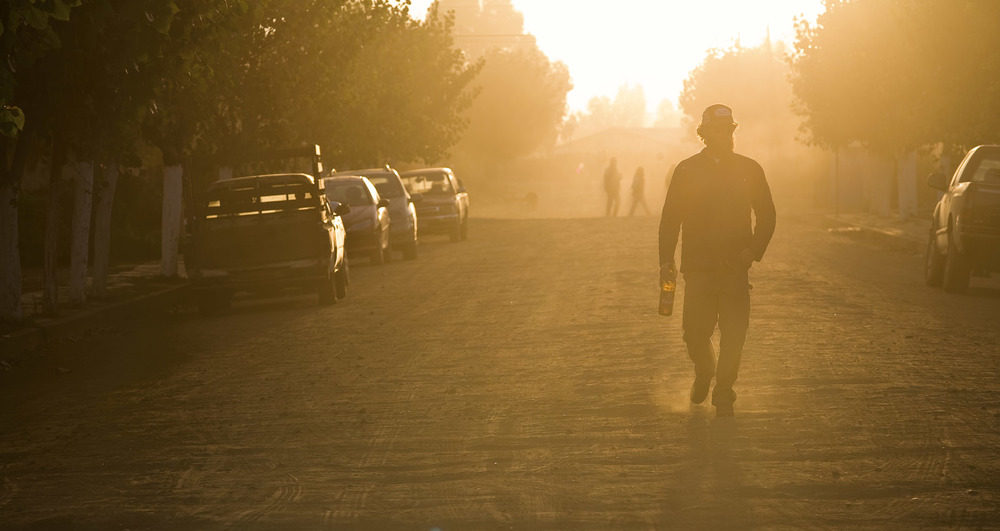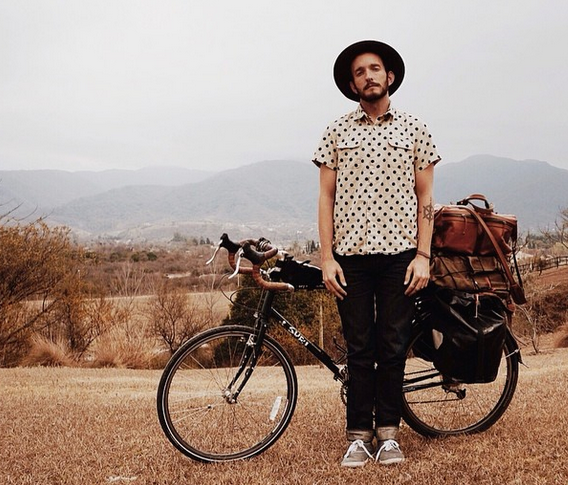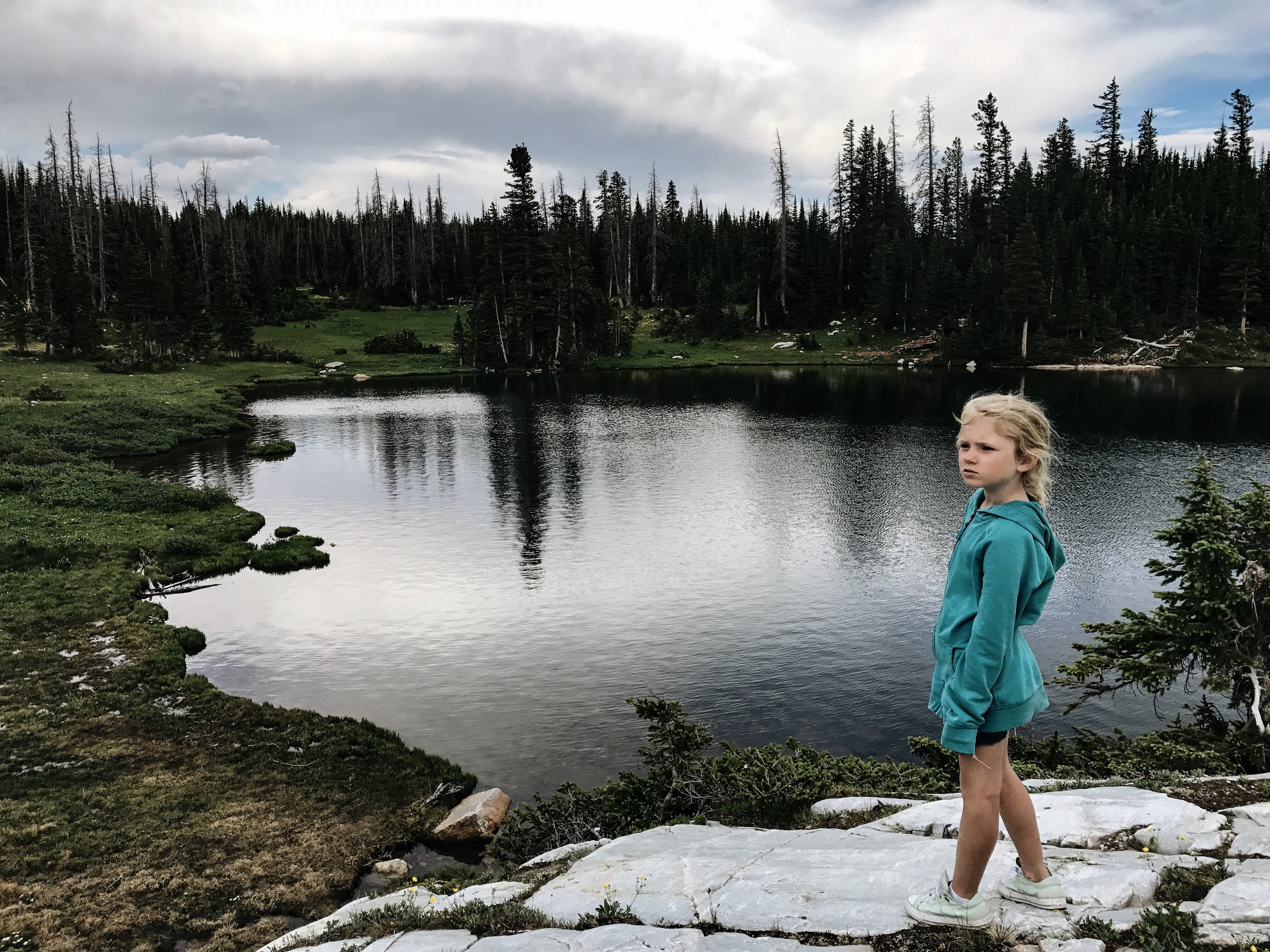"I had this fear of building this routine in my 30's and suddenly this decade is gone. And so I promised myself that I would do something radically different. I'm gonna do something that scares the crap out of me and see if that changes my brain chemistry."
For almost twenty years, stories like this have floored me. Stories of Chris McCandless heading to Alaska pulled and twisted my gut; Jack Kerouac traveling . . . everywhere, inspired me to hit the road and live dangerously, spontaneously, so that I could "discover myself", through radical and unchecked living.
But, the thing is, I still love these types of stories and still believe in them, a little. Mostly I don't because, now, these stories seem selfish and empty. Hitting the road for weeks or months, or even years, at a time is, in all honesty, easier than staying at home. Quitting a job and living alone while walking away from commitments, family, and responsibility, is easier. It is. Because to wake up each morning with something new and different, instead of sticking it out - instead of enduring - and finding beauty in the mundane, is simple.
Because, often, it's easier to be a stranger than it is to be known. As a stranger, people see what you want them to see. When we're known, people see what we are.
To live radically one does not need to fear routine.
However,
"The routine is the enemy of time. It makes it fly by."
And that, I agree with.
Kind of.
Every how-to-live-creativily blog or book or article I have ever read talks extensively about how the magic of creativity is not a single explosive moment - a lightening bolt - but rather, it is the long rolling thunder of a distant storm. It takes time, routine, and consistency.
However, routine can be the enemy, maybe not of time, but for sure of life, or at least growth, because, when the "Brain has figured out the pattern of the way the world works." Once it "establishes a routine, it stops", and "the alertness goes away."
The alertness of people, of beauty, and of opportunity.
To me, this becomes most predominant in things like politics, religion, race, and relationships. Most all of these have strong and deeply rooted routines of thought, and our brain have therefore stopped. Stopped considering, questioning, and, worst of all, listening. Because we know what we know. And what we know most of all, is our thought routine.
But life is "about getting out of your routine."
Truly. That is, if we want to truly and deeply live; if we want to "be aware of every day {we are} alive."
David Foster Wallace says it this way:
After work you have to get in your car and drive to the supermarket. The supermarket is very crowded. And the store is hideously lit and infused with soul-killing Muzak. It's pretty much the last place you want to be. And who are all these people in the way? Look at how repulsive most of them are, and how stupid and cow-like and dead-eyed and nonhuman they seem, or at how annoying and rude it is that people are talking loudly on cell phones. Look at how deeply and personally unfair this is. Thinking this way is my natural default setting. It's the automatic way that I experience the boring, frustrating, crowded parts of life.
But there are totally different ways to think about these kinds of situations. You can choose to look differently at this fat, dead-eyed, over-made-up lady who just screamed at her kid in the checkout line. Maybe she's usually like this. Maybe she's been up three straight nights holding the hand of a husband who is dying of bone cancer. If you really learn how to pay attention, it will actually be within your power to experience a crowded, consumer-hell type situation as not only meaningful, but sacred. You get to consciously decide what has meaning and what doesn't (pg 109).
Seeing people beyond what we know, deciding and choosing to admit possible fault and to "choose to see ordinary things differently" gets us out of our thought routines and walks us to a point where we might be saved.
Kevin Ashton describes this through a study by William Syrotuck.
William Syrotuck analyzed 229 cases of people who became lost, 25 of whom died. He found that when we are lost, most of us act the same way. First, we deny that we are going in the wrong direction. Then, as the realization that we are in trouble seeps in, we press on, hoping chance will lead us. We are least likely to do the thing that is most likely to save us: turn around. We know our path is wrong, yet we rush along it, compelled to save face, to resolve the ambiguity, achieve the goal. Pride propels us. Shame stops us from saving ourselves (pg 90).
If we are able to do that, we open the possibility to "Learn something new, learning something astonishing."
I've often wondered about the lives of the men and women who go on these "do something radically different" types of adventures. More specifically, I've thought of what happens after the journey. Because the making of the video or writing a book and talking about life and lessons and the breaking of routine sounds truly romantic and fully enticing. But what happens when they get home? Do their daily lives change, or do they fall back into old routines? Do they find themselves heading on another adventure, eager for another fix, and anxious to escape life? Or are they truly changed?
How many of them die, alone, in a bus somewhere that is filled with books and journals and ideas of life and living and the glory of the open road?
How many make it to 85 years of age?
I love adventure stories because I love adventures and freedom and the wild, wild unknown, and I love the lessons that getting out into the mountains can teach me. But I also love home, being known, and learning something new and astonishing in the people I know and love.
And I love routine. Of waking up in the dark hours of the morning to fresh coffee and a good book. Of conversations with good friends who strongly disagree but trust and know and choose to stay because that too is a routine, and it's beautiful. I love routine and the safety and creativity it provides. It isn't something that destroys. Rather, it is something that provides.
This notification, literally, just popped up on my phone: "On Writing Tweeted: The mere habit of #writing, of constantly keeping at it, of never giving up, ultimately teaches you how to write. - Gabriel Fielding"
Doing something radically different in an effort to break routine and turn our brain on is a right and good choice, but it doesn't have to involve long journeys that stretch from our front door. If we are alert, if instead of assuming, knowing, and condemning we question, consider, and empathize, we will embark on a journey that will scare the crap out of us, and others, and our brains will not shut off. It will explode.
Then, hopefully, when we are suddenly old and gray and trying our hardest to blow out 85 friggen candles, we'll look back and wonder where the years have gone, and how it was they went so quickly by.
But then, when the candles are out and the cake is cut, we'll look around the room and remember the faces of the many men and women who have come to celebrate, and the room will dance of stories and memories and the same old conversations, and it will be beautiful, because it will be routine.
And our hearts will be perfectly exhausted.
To read more about Jedidiah Jenkins and his 7000 mile journey from Oregon to Patagonia, click here.
For more on . . .
-N- Stuff : Life Lessons from 100-Year-Olds : On Living
BE SURE TO SCROLL DOWN AND SUBSCRIBE - THANKS FOR READING!






























